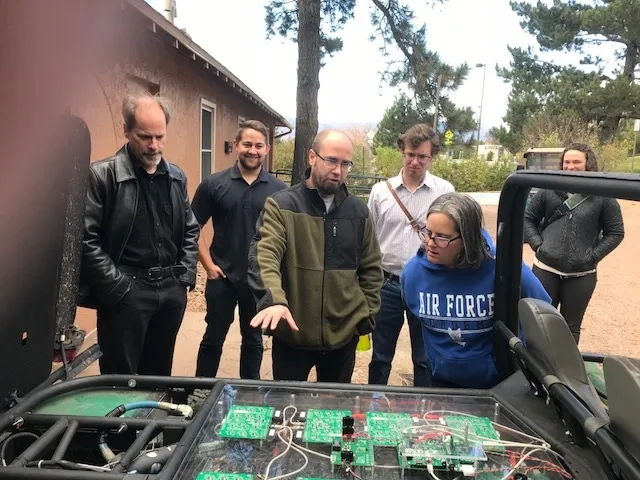

DRIVE
Spring 2016 - Transportation + EnergyProject Overview
Transportation accounts for approximately 27% of worldwide energy consumption and produces more than 25% of global CO2 emissions. More than 93% of transportation is oil-powered and achieves efficiencies of only around 21%. On the other hand, plug-in hybrid and electric vehicles (xEVs) exhibit drastically reduced “well-to-wheel” fossil-fuel utilization, boast around 80% on-boardelectric-mode energy efficiency, and produce almost no point-in-use emissions. Furthermore, the originating source for xEV energy is fungible – it can include a wide variety of renewables (e.g. solar, wind, hydro, etc.). Since passenger vehicles comprise more than 59% of the transportation sector, increased market penetration of xEVs will have an enormous impact on global sustainability.
More than 80% of reported consumer reluctance to adopt xEV relate to vehicle cost, range, and plug-in charge time. These are all battery related. The battery is the single-most expensive xEV component; its size determines range (and cost); its life-cycle limitations drive charge time. We are working on this. Our research team at UCCS is globally recognized for its leadership in modeling and controls for high-capacity battery systems spanning 15 years. There are over 3,600 citations in the literature to our publications and our approaches are implemented in commercial products. Applications of this research have had an impact on the trajectory of xEV design and on the broader interest of reducing the use of fossil fuels for transportation. Research conducted at UCCS has focused on developing a deep understanding of how batteries work and leveraging that understanding to build state-of-the-art battery controls that extract maximum performance while simultaneously maximizing lifetime – and thereby extending range and reducing size, cost, and charge times – of battery packs for future xEVs.
It is time to showcase this work to raise awareness at UCCS regarding sustainable transportation, to
attract students to UCCS, and to involve more UCCS students in hands-on battery controls and
vehicle-electrification activities. We propose to do so by leveraging two ultra-high-performance allelectric off-road vehicles owned by our research group. Presently, neither vehicle is operational, severely limiting their usefulness for research and student recruitment.
The DRIVE project is designed to develop and implement electronics and interfaces to bring these
two vehicles to operational status. This will promote global sustainability by supporting xEV research at UCCS by providing a platform for validation of next-generation battery-pack controls; it will enable student involvement at UCCS in xEV research – over the duration of the DRIVE project itself and beyond – using these vehicles as a durable test-bed. Once operational, the vehicles will also serve in an ongoing dynamic and exciting demonstration role (e.g., at college outreach and Sustainnovate) that will promote student recruiting, sustainable awareness and outreach.